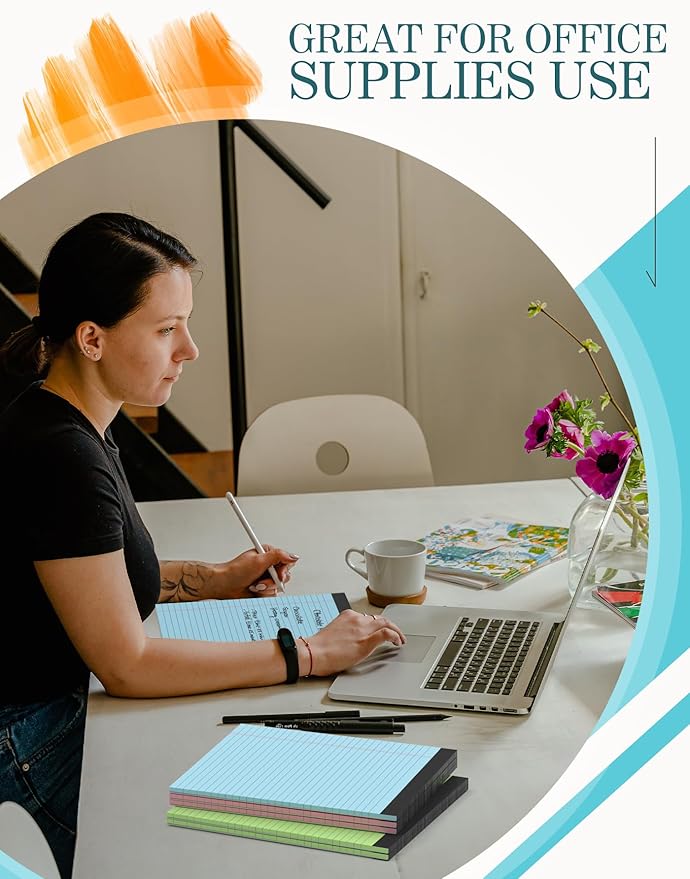
The Office Refresh Movement: Simple Ways to Revive Your Workspace
Share
🌤️ Why Offices Across the U.S. Are Getting a Refresh
After years of hybrid work and screen fatigue, both individuals and organizations are rethinking what their workspace feels like.
Across New York, Austin, and Los Angeles, a quiet movement called the “Office Refresh Trend” is taking hold — small, intentional changes that create lighter, more energizing environments.
Unlike full renovations, these transformations focus on mood, layout, and sensory balance — color, lighting, organization, and personal comfort — to help people want to be in the office again.
💡 Trend note: Google searches for “office refresh ideas” and “workspace mood design” have risen more than 40% since early 2025.
🪴 1. Light Is the New Productivity Tool
Natural light has become the number one priority for U.S. offices, but artificial lighting is catching up fast.
Modern desk lamps and ceiling lights now come with adjustable color temperatures to mimic daylight patterns, boosting both focus and calm.
Practical Tip:
-
Use warm light (2700–3000K) in break zones for relaxation.
-
Use cooler light (4000–5000K) in task areas for alertness.
-
For windowless offices, smart LED panels that simulate sunlight can improve morale and reduce fatigue.
🧩 2. Declutter to Think Clearer
A cluttered desk can subtly increase stress levels.
In corporate and home offices alike, people are turning to modular organizers, floating shelves, and cable trays to maintain visual order.
Why It Works:
Studies from the University of Minnesota found that minimal visual chaos directly correlates with higher task completion rates.
A clear desk equals a clear mind — and it costs almost nothing to implement.
💡 Try a “Friday Reset” ritual: clear your workspace at the end of each week to start Mondays fresh.
🎨 3. Add Color for Creativity
Color psychology is making a comeback in workplace design.
While many U.S. offices used to default to gray or white, companies are now using soft green, terracotta, or pale blue to spark creativity and warmth.
Color Quick Guide:
-
Green: Boosts concentration and reduces eye strain.
-
Blue: Encourages calm, logical thinking.
-
Orange/Terracotta: Adds warmth and social energy.
Even something small — like colorful stationery, mouse pads, or pen trays — can shift a desk’s emotional tone.
🪑 4. Rezone, Don’t Redesign
Many businesses are realizing they don’t need an expensive remodel.
Instead, they’re re-zoning existing space — creating mini areas for different types of work: quiet corners, brainstorming walls, and social coffee tables.
At the personal level, U.S. professionals are adopting flexible setups:
-
Standing desk converters that allow quick posture changes.
-
Portable screens or dividers for privacy.
-
Shared supply stations to reduce clutter.
💡 Small detail, big impact: A single rolling cart or storage cube can transform an unused corner into a collaborative supply hub.
🧠 5. Add “Texture and Scent” for Mindful Focus
Modern offices are also becoming more sensory — in a subtle, professional way.
Adding soft textures (felt mats, fabric panels, cork boards) or gentle natural scents (eucalyptus, cedar, citrus) helps reduce mental fatigue.
Why It Works:
Our brains associate texture and scent with comfort and memory.
A workspace that feels good keeps people grounded and attentive longer.
Tip: Avoid heavy fragrances; opt for essential-oil diffusers or light candles during breaks in home offices.
🏢 6. The Team Connection Factor
For group offices, refreshing isn’t just about design — it’s about culture.
Teams are using shared whiteboards, bulletin strips, or mood boards to visualize weekly goals and celebrate milestones.
These tactile, analog tools balance out digital overload and reinforce human connection — something remote work environments often miss.
💬 Survey highlight: A 2025 LinkedIn poll found that 76% of employees felt “more motivated” after their workspace was refreshed or reorganized.
🌈 Final Thoughts
The “Office Refresh” trend isn’t about expensive redesigns — it’s about intentional improvement.
From better lighting to calming colors and organized layouts, these small, affordable changes can completely shift how a workspace feels and functions.
Whether you’re an individual worker or part of a larger office, the goal is the same:
➡️ Make your space somewhere you actually enjoy spending time — because that’s where your best work happens.
